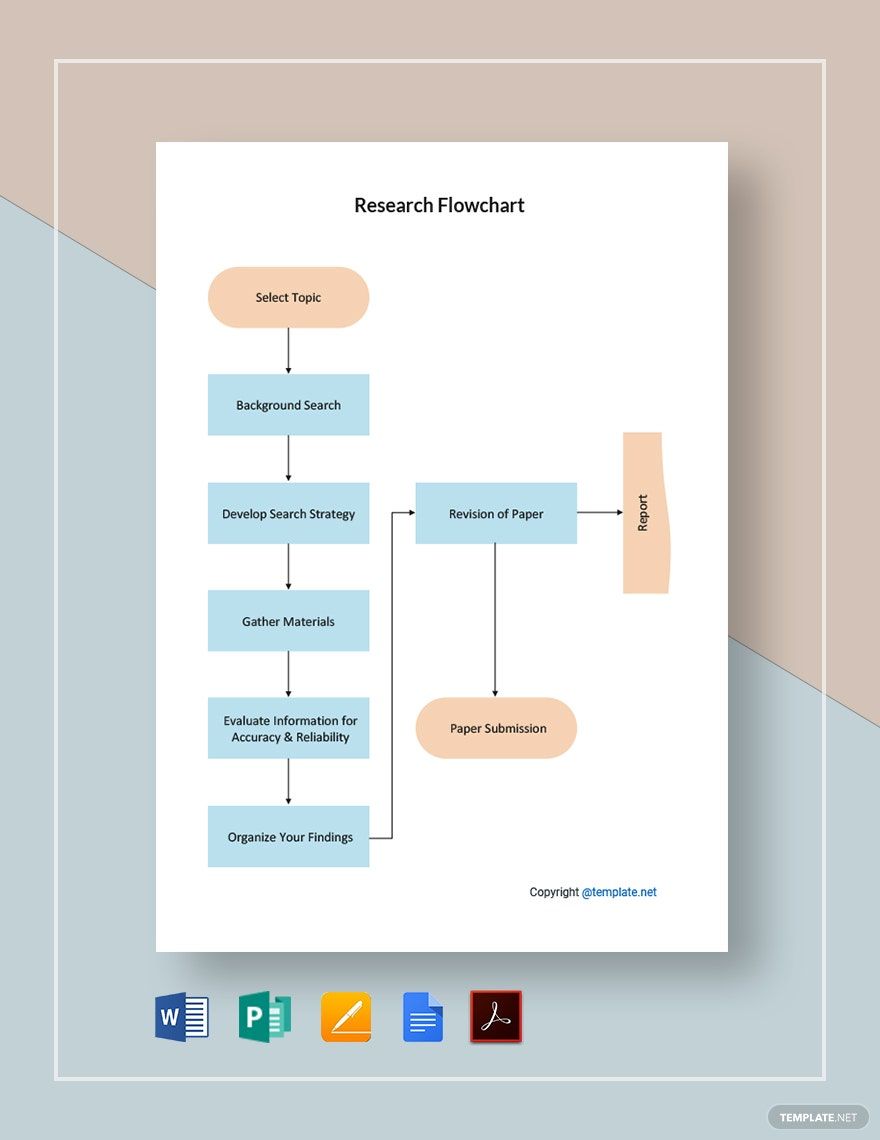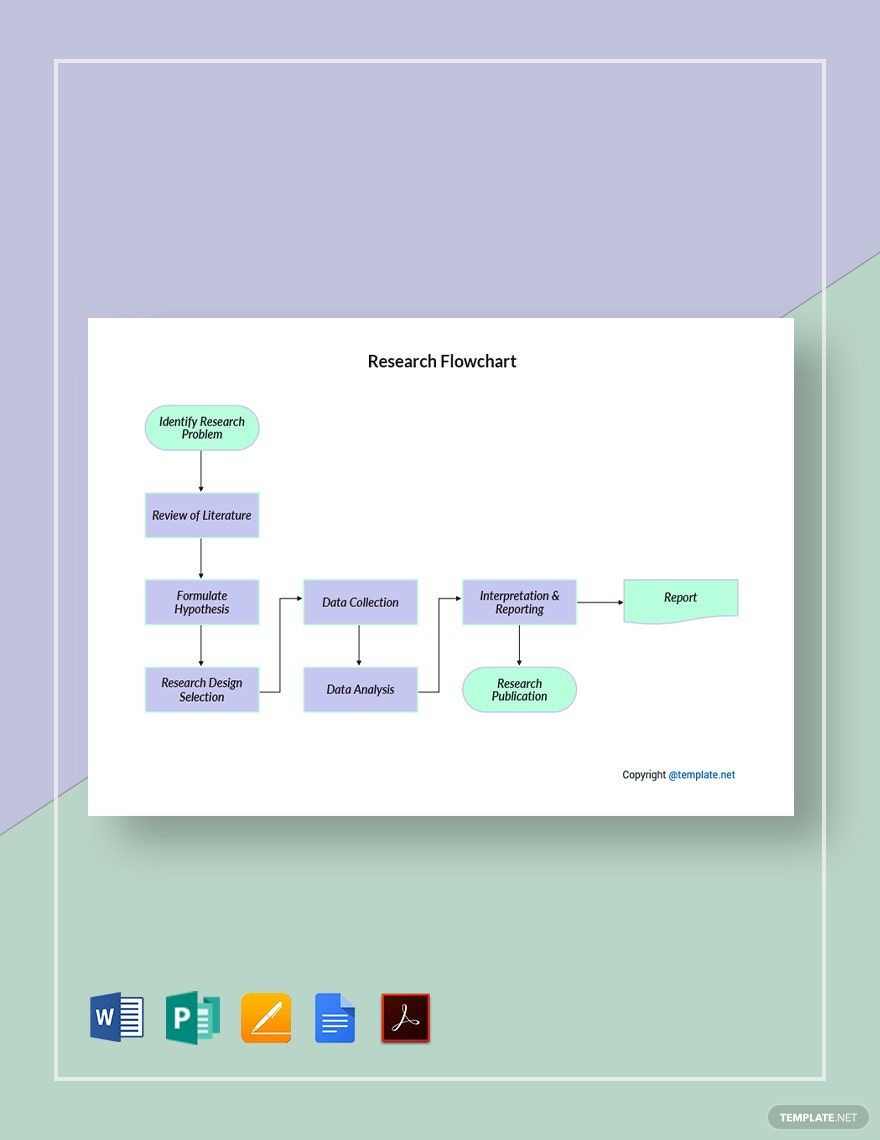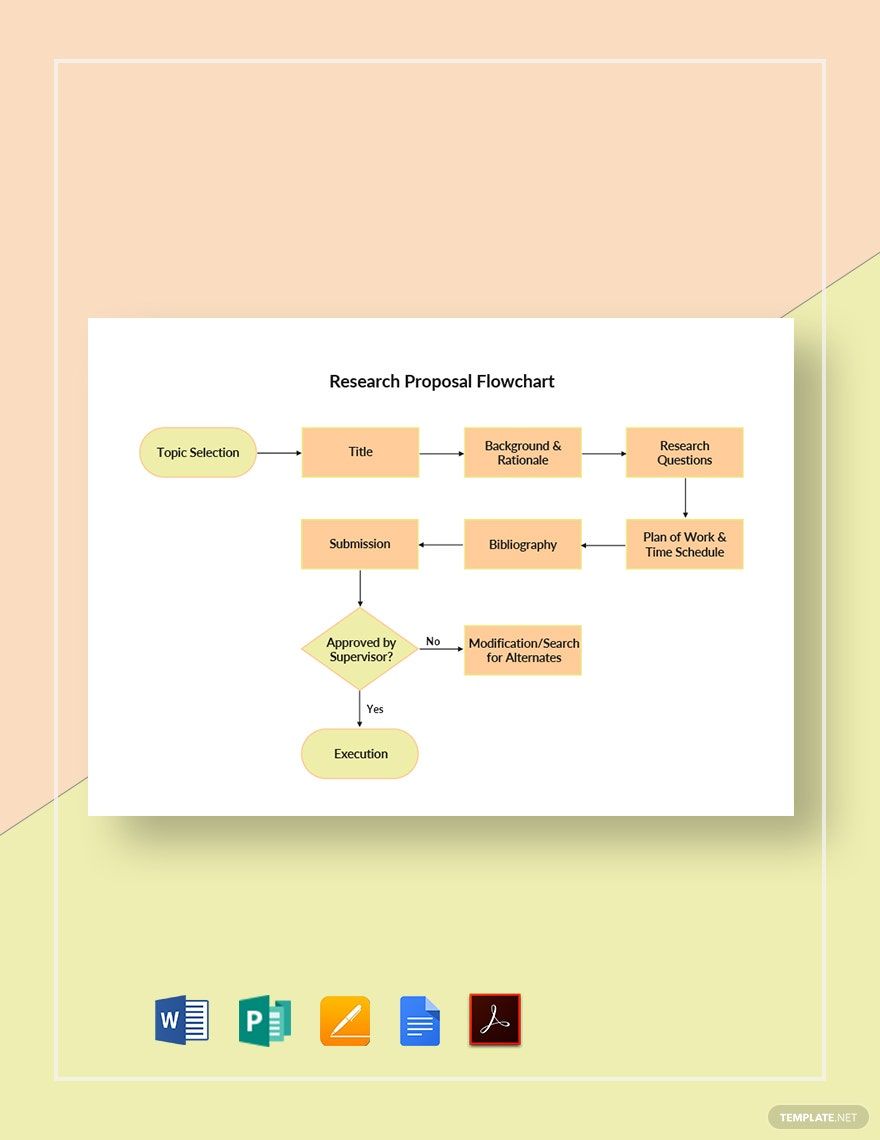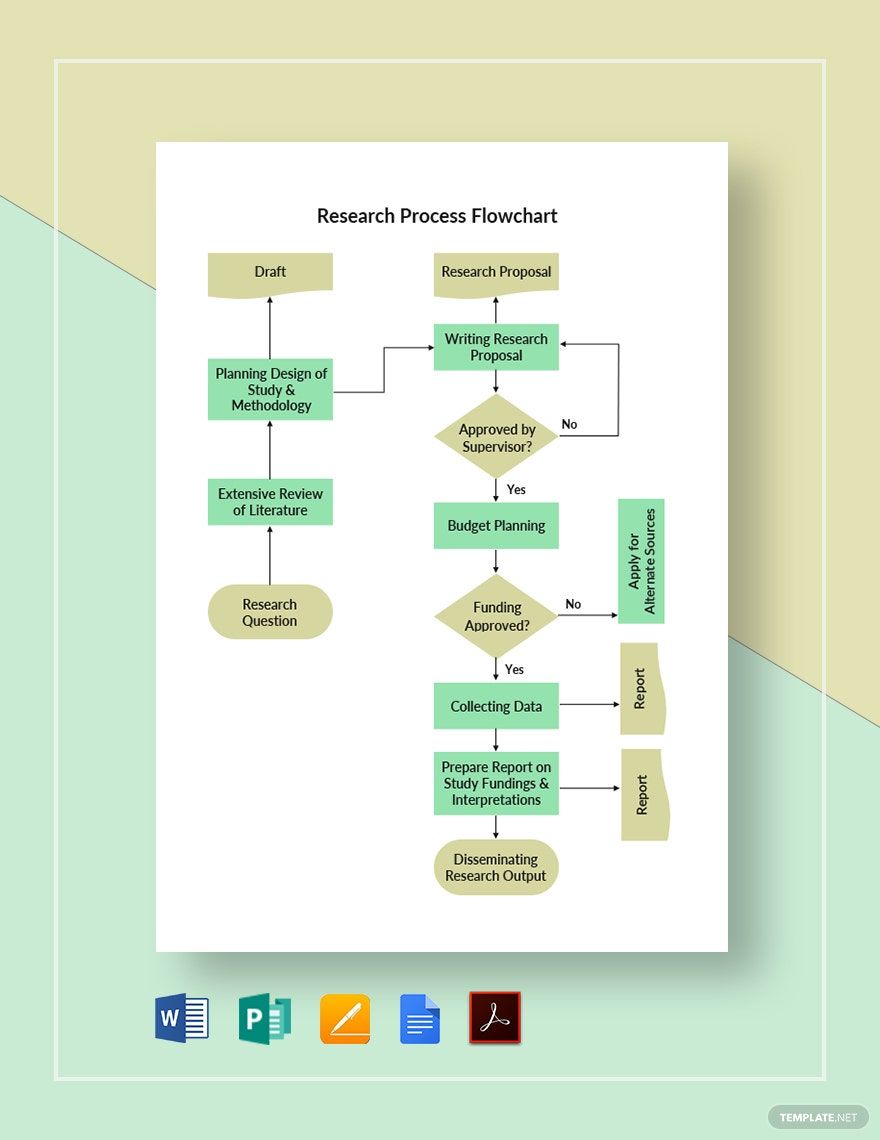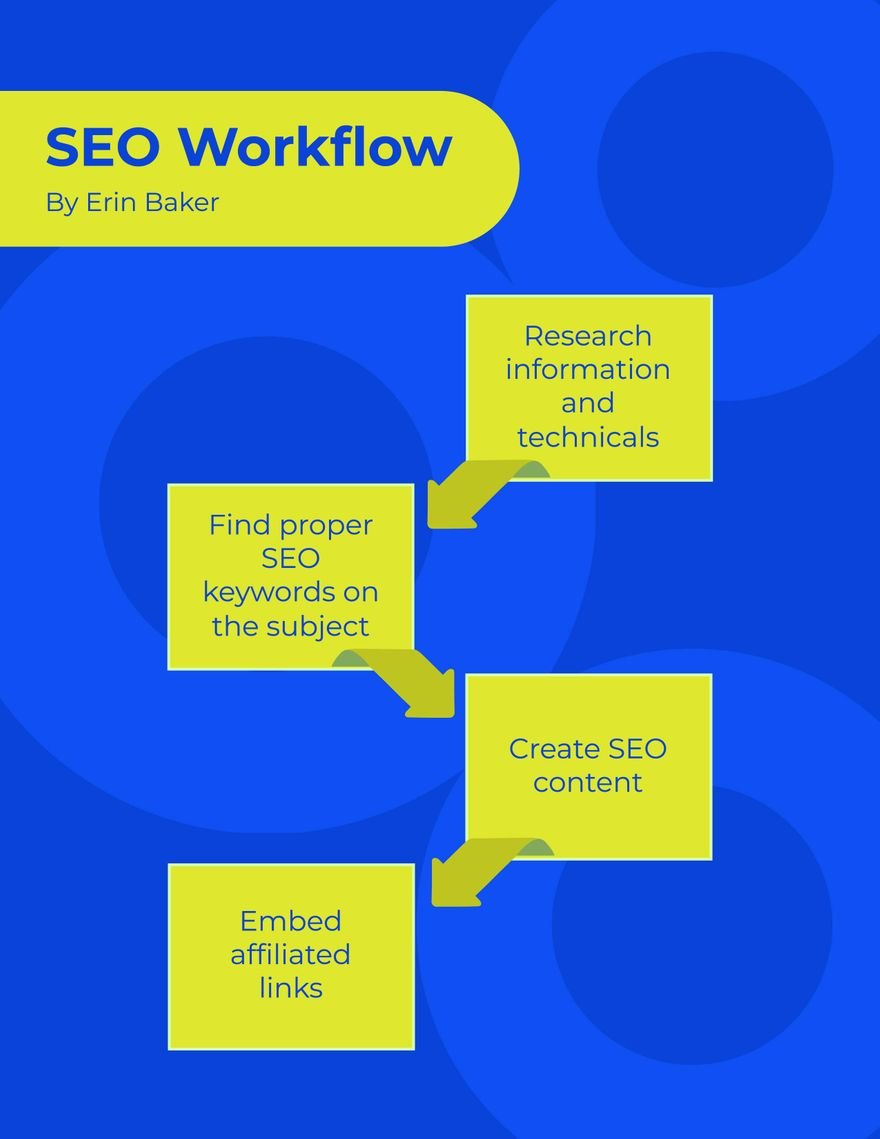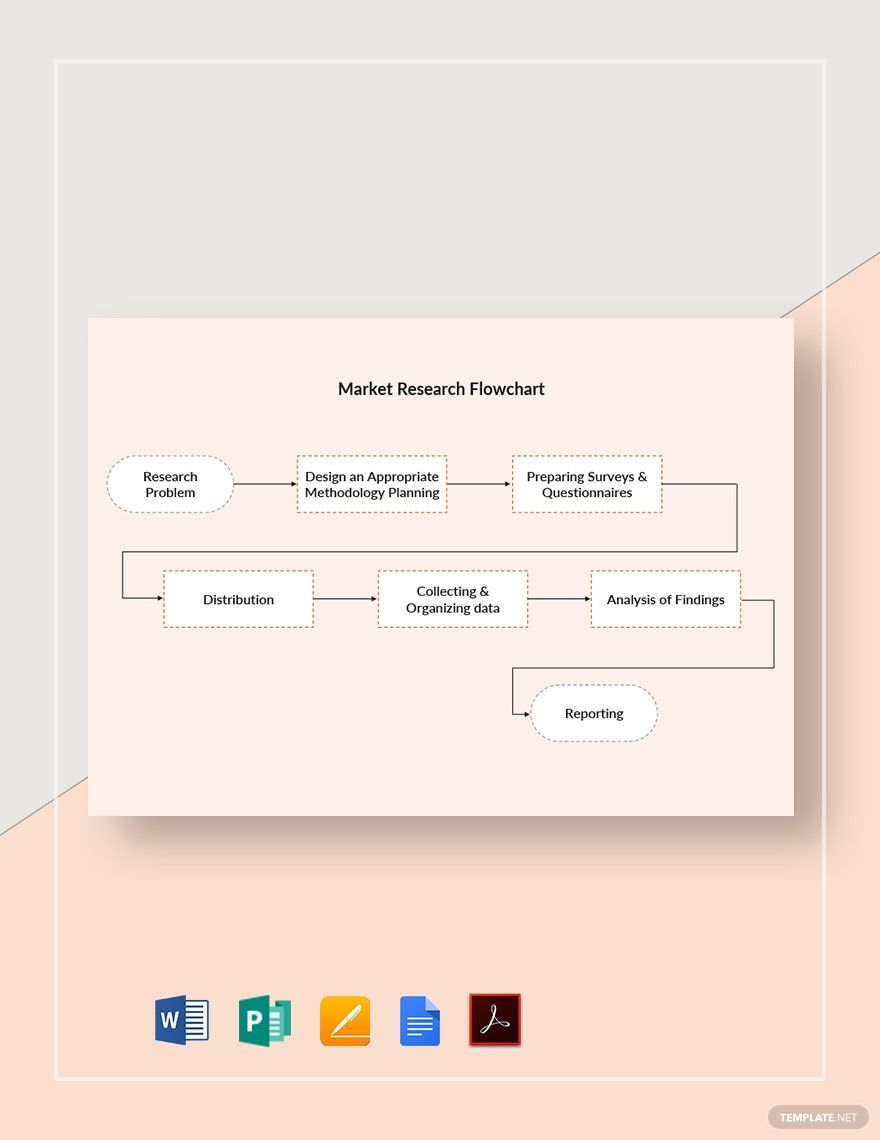Not everybody is a fan of research making, not even for people in the business. Research is daunting at first glance, especially when you have to start everything from scratch. But what if you try to make a flowchart to guide you in the process? Impress your management by developing a comprehensive research report and download our ready-made templates on Research Flowcharts. 100% customizable and highly editable, they are all professionally written by experts and are readily available in MS Publisher format. And what's more, there's no need for you to start from scratch! So hurry and subscribe to our plans.
Research Flowchart Template in Publisher
There's No Need to Pay for a Convoluted Flowchart Software or Expensive Workflow Template in Presenting a Quantitative Research Proposal, Longitudinal Research Methodology, Recruitment Research Proposal, or Any Research. With Template.net, You Can Download, Edit, and Print a Research Flowchart for Free! Thus, the Flow of Your Longitudinal Study, Research Latitudinal or Longitudinal Chart, or Worfklow Runs Smoothly.
- Kitty party invitation
- Banner
- Graduation brochure
- Mothers day card
- Graduation Invitations
- Place cards
- Websites
- Cookbook
- Letterheads
- Reports
- Publisher
- Certificates
- Brochures
- Invitations
- Flyers
- Funeral Brochures
- Cards
- Portfolio templates
- Company Brochures
- 4th of july
- Travel Brochures
- Infographics
- Cinco de mayo day
- Campaign
- Bi fold brochures
- Housewarming Invitations
How to Make a Research Flowchart in Publisher
Researches are not only limited to students and for academic purposes. According to LinkedIn, in business, researches provide executives in-depth knowledge of what goes on in the market, its competition, the status of the company, and it guides the group to make better decisions for each situation. Create a professional research flowchart for your business with the help of these tips below.
1. Decide on a Research Topic
Identify the current issues your company is facing and focus in an area you wish to resolve. Depending on the topic you choose, decide if you plan to develop qualitative research or quantitative research.
2. Determine the Objectives of Your Topic
Determine your goals in making your research flowchart, whether your objective is to research your company's competitive analysis or create a report on your monthly sales and finances. Detail how you plan to achieve your expected output.
3. Map Out the Process of Your Research
Identify the factors affecting your research, such as your respondents, your survey questionnaires, and your environment. Assign roles and responsibilities to each of your members, then map out the process on your data collection and data analysis procedures.
4. Review and Finalize Your Flowchart
Review and finalize your flowchart for any errors. Check the symbols used in the diagram and ensure that it is structured correctly from the beginning of the process until its end.
Frequently Asked Questions
What is a research flowchart?
A research flowchart is a diagram that maps out the beginning of an inquiry to the end of a conclusive understanding. Basically, it illustrates the process of tasks in research making, allowing the members to quickly understand the workflow of the activity and perform work efficiently to meet its deadline.
What is a methodology flowchart?
A methodology flowchart is a graphical representation of a business process. This helps the organization easily visualize and understand the steps and the process of how things are done, allowing the group to standardize its operating procedures and to improve their performances in the future.
How do you write a research process?
1. Identify the problem of your research
2. Make your review literature
3. Clarify the issue of your research
4. Define the terms and concepts of your topic
5. Indicate the population and respondents
6. Develop your instrumental research plan
7. Collect and organize your data
8. Analyze your data
9. Provide a conclusion to your research
Why is research so important?
1. Builds knowledge and facilitate learning
2. Understand various issues and develop public awareness
3. Improve business management and success
4. Detect and prove lies to support the truth
5. Means to determine and achieve opportunities
6. Improve reading, writing, and analytical skills
What are the characteristics of research?
1. Systematic - the procedure follows a specific logical sequence.
2. Controlled - the process minimizes the effects of other factors affecting the results of the research.
3. Rigorous - the answers are relevant, appropriate, and justifiable to the problem.
4. Valid and verifiable - the conclusion of the study is correct and can be verified by other researchers.
5. Empirical - the conclusion drawn comes from data collected from observations and real-life experiences.
6. Critical - the process of the investigation must be able to withstand critical scrutiny.
